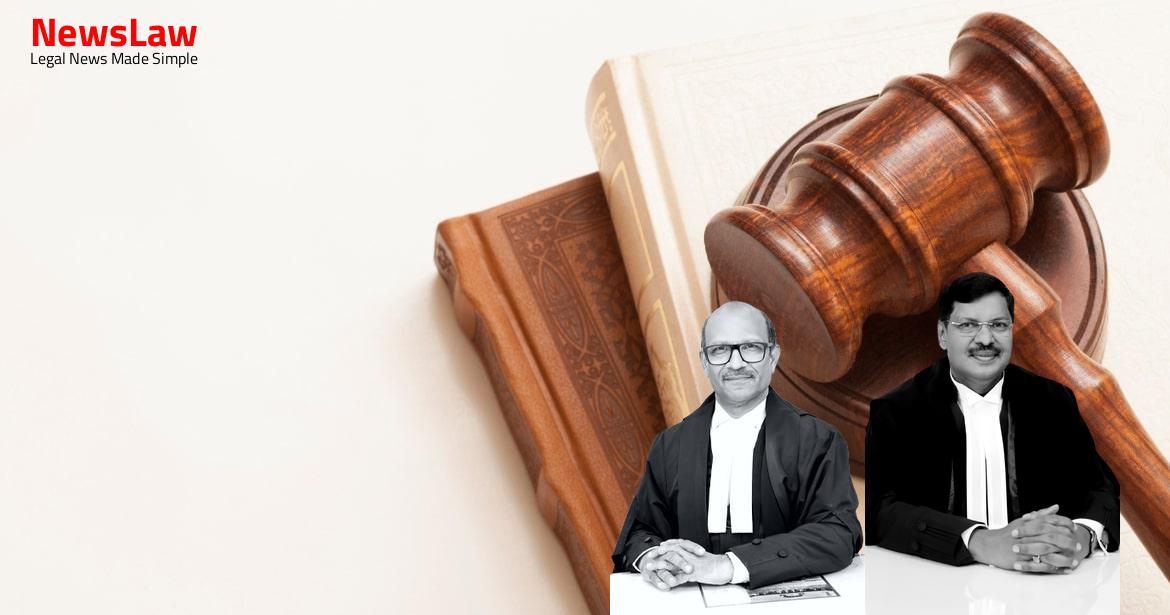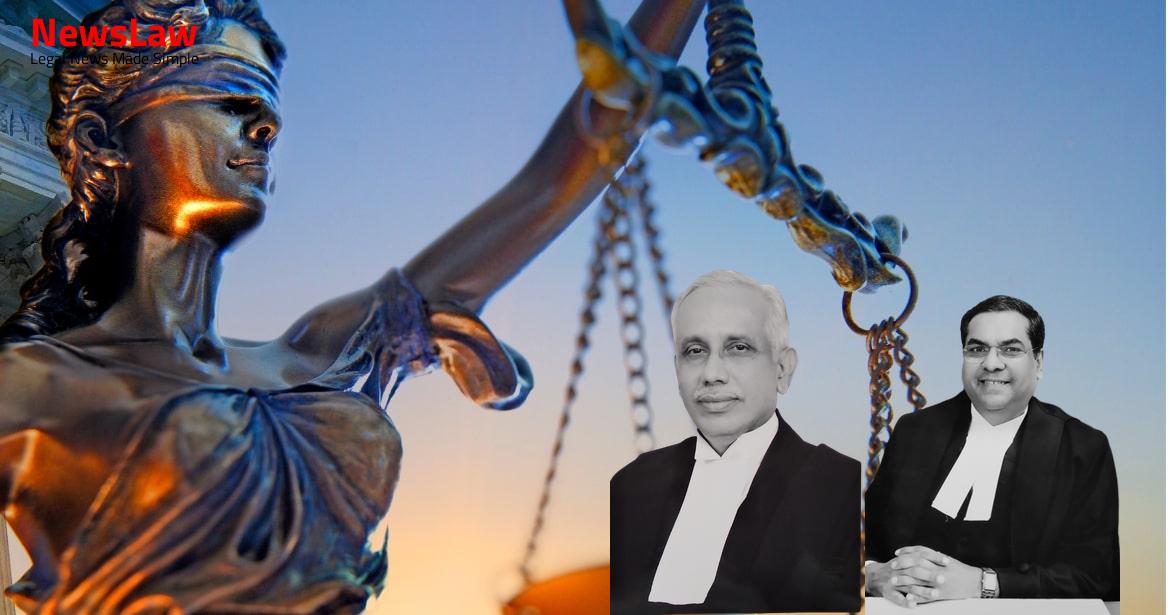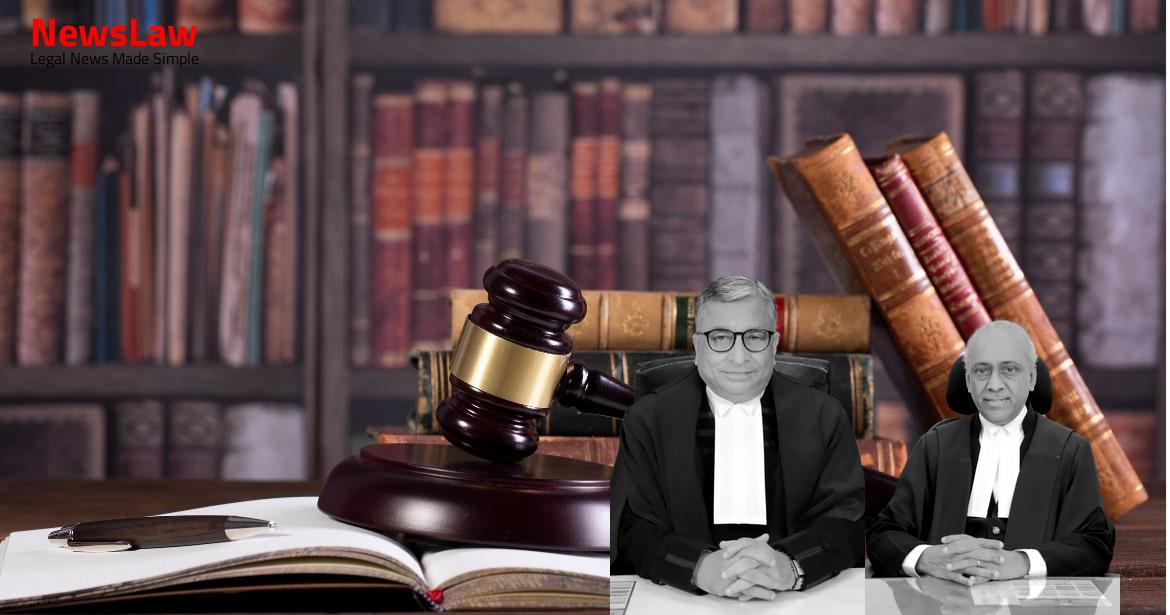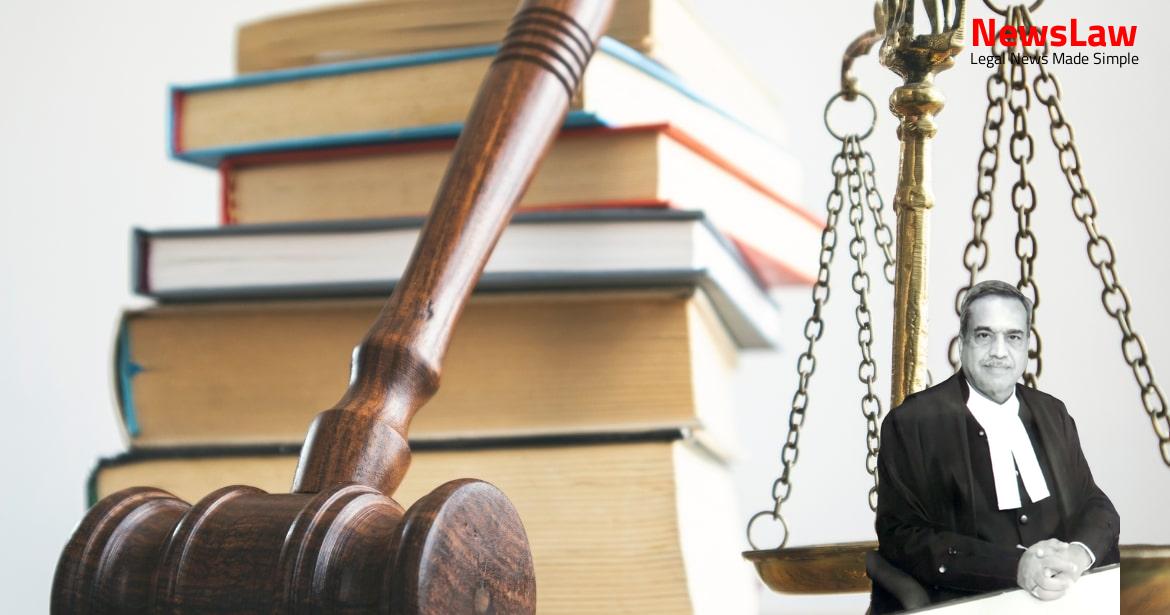In the case of Mr. R.S. Madireddy v. Talace India Pvt Ltd., the Supreme Court of India has made a significant judgment regarding the dismissal of writ petitions filed by former employees of Air India Limited. The petitions raised concerns about the violation of Articles 14, 16, and 21 of the Indian Constitution. The case involved the privatization and disinvestment of AIL, which was acquired by Talace India Pvt Ltd. Explore the details of the court’s decision and its implications for the appellants’ legal claims.
Facts
- Former employees of Air India Limited (AIL) filed writ petitions challenging the dismissal of four writ petitions by the High Court of Bombay.
- Appellants were former cabin crew members who worked for AIL in the late 1980s and retired between 2016 and 2018.
- Violation of Articles 14, 16, and 21 of the Indian Constitution was claimed in each writ petition.
- After the repeal of the Air Corporations Act, 1953, Air India merged with Indian Airlines, and AIL became wholly government-owned.
- On October 8, 2021, the Government of India announced the acceptance of a bid by Talace India Pvt Ltd. to purchase 100% shares of AIL.
- Subsequently, on January 27, 2022, Talace India Pvt Ltd. purchased 100% equity shares of AIL from the Government of India, leading to the privatization and disinvestment of AIL.
- Writ petitions No. 844 of 2014 raised issues of anomalies in pay fixation resulting from the implementation of the Justice Dharmadhikari Committee report.
- Writ petitions No. 123 of 2014 and 844 of 2014 were filed alleging pay stagnation and lack of promotion for employees.
- The Gujarat High Court Single Judge held the writ petition was not maintainable.
- The Bombay High Court Division Bench, in a common judgment on 20th September 2022, denied relief in the writ petitions due to non-maintainability.
- The non-maintainability was attributed to the privatisation of the company involved.
Issue
- The issue at hand is whether the writ petition filed against IPCL remained maintainable post its privatization.
- Key questions for consideration are whether IPCL, now a private entity, could still be subjected to writ jurisdiction of the High Court and whether the nature of the employer changing from a Government entity to a private entity could lead to the appellants being non-suited.
- Another aspect to be examined is whether the delay in the disposal of the writ petition could be considered a valid ground for sustaining the appellants’ claim against the private entity.
- After considering the arguments presented by the counsels and reviewing the judgment and records, these questions of law are posed for adjudication by the Court.
Also Read: Kailash Chand v. Mukat Lal: Landmark Case on Hindu Succession Rights
Arguments
- Learned senior counsel contended that the cause of action for filing the writ petition crystallized at a point in time when the respondent authority was subject to the writ jurisdiction.
- Rights vested by virtue of a statute cannot be divested by the equitable doctrine.
- The petitions were filed on behalf of the appellants with genuine service-related issues and allegations of infringement of fundamental rights.
- The appellants are entitled to relief as claimed in the writ petitions because the employer, respondent No 3(AIL), was amenable to writ jurisdiction at the time of filing the petitions and continues to discharge public duties post-privatization.
- Learned senior counsel emphasized that the nature of the duty imposed on a private body is crucial for determining the availability of a writ petition against them.
- The Division Bench of Calcutta High Court’s judgment in Ashok Kumar Gupta’s case was cited to support the appellants’ position that the cause of action vested their right to have their grievances adjudicated through a writ proceeding.
- The subsequent change in the status of the employer post-privatization should not extinguish the rights of the appellants, and the forum for adjudication can change without nullifying their substantive rights.
- The specific liberty granted to the appellants by the High Court in the impugned judgment protects their rights, and any favorable decision by a competent court would be enforceable against the employer.
- The appellants approached the writ court after a significant delay following the cause of action, and the petitions were filed between 2011 to 2013 with the Bombay High Court.
- Learned senior counsel urged the Court to dismiss the appeals based on the above arguments.
- The preliminary objection raised regarding the maintainability of the writ petition was based on the argument that the company had changed hands during the proceedings, no longer meeting the criteria of a ‘State’ or ‘Other authority’ as per Article 12 of the Constitution of India.
- The writ petitioner argued that the petition was maintainable against the respondent at the time it was filed, despite the change in ownership of the company.
Also Read: Case Summary: Kripa Tori vs. State of Madhya Pradesh & Ors.
Analysis
- The duty cast upon a public body may be statutory or otherwise with a public law element.
- For a corporation to be considered an instrumentality or agency of the Government under Article 12 of the Indian Constitution, it must meet specific parameters laid down by judgments.
- Various tests have been outlined to determine if a corporation falls under government control, making it a state agency.
- Writ petitions are typically issued against public authorities, but in certain cases can be issued against private entities performing public functions.
- The scope of mandamus is determined by the nature of the duty to be enforced rather than the identity of the authority.
- The law relating to mandamus has advanced significantly, allowing for its application against private bodies discharging public functions.
- The tests for determining whether a body is a State within Article 12 are not rigid and necessitate a holistic view of the situation.
- If a corporation’s functions are of public importance and related to governmental functions, it may be classified as an instrumentality or agency of the Government.
- The issuance of a license by the Union or State Government for company operations alone does not make it a state instrumentality.
- Amendments to litigation may be permitted to address deficiencies in a cause of action and avoid multiple legal proceedings.
- Article 226 confers wide powers on High Courts to issue writs in the nature of mandamus
- The Rules of Court (Order 53) in 1977 and the Supreme Court Act, 1981 give statutory force to the provisions of Article 226
- The word ‘for any other purpose’ in Article 226 grants broad discretion to High Courts to issue writs for various purposes
- The control exerted by the government must be pervasive and particular to make a body a State
- Courts may shape reliefs to ensure justice in updated circumstances
- Courts consider financial, functional, and administrative dominance to determine control by the government
- The nature of duty imposed on a body is more relevant than its form
- High Courts have consistently ruled that a private entity, post disinvestment from the government, is immune from writ jurisdiction under Article 226
- The delay in disposal of writ petitions cannot be a ground to continue with the petitions
- The term ‘authority’ under Article 226 should receive a liberal meaning similar to Article 12 for enforcement of fundamental rights
- The High Court has the power to issue directions, orders, or writs to any person or authority for fundamental rights enforcement
- The Court is not bound by previous laws on matters of granting relief
- The change in circumstances, such as disinvestment of a government company, can impact the maintainability of a writ petition against the private entity
- Previous law on who qualifies as public authorities is not absolute or binding
- A writ cannot be issued against a private entity that was a public sector undertaking at a previous time but no longer exists as such
- A writ can be issued to any person or authority.
- The writ is for enforcement of rights conferred by Part III and for any other purpose.
- Division Bench of Bombay High Court denied equitable relief under Article 226 but upheld rights of appellants to seek relief through appropriate legal forum.
- If appellants choose to seek legal relief, Section 14 of the Limitation Act will help address any issue of limitation.
- The writ petitions were filed with a significant delay from when the cause of action arose.
- The Supreme Court concurs with the Bombay High Court’s decision that the writ petitions were not maintainable.
Decision
- The appeals have been dismissed based on the observations provided in the judgment.
- No specific order has been given regarding costs.
- Any pending applications have been disposed of as a result of this judgment.
Case Title: R. S. MADIREDDY Vs. UNION OF INDIA (2024 INSC 425)
Case Number: C.A. No.-006473-006476 – 2024



